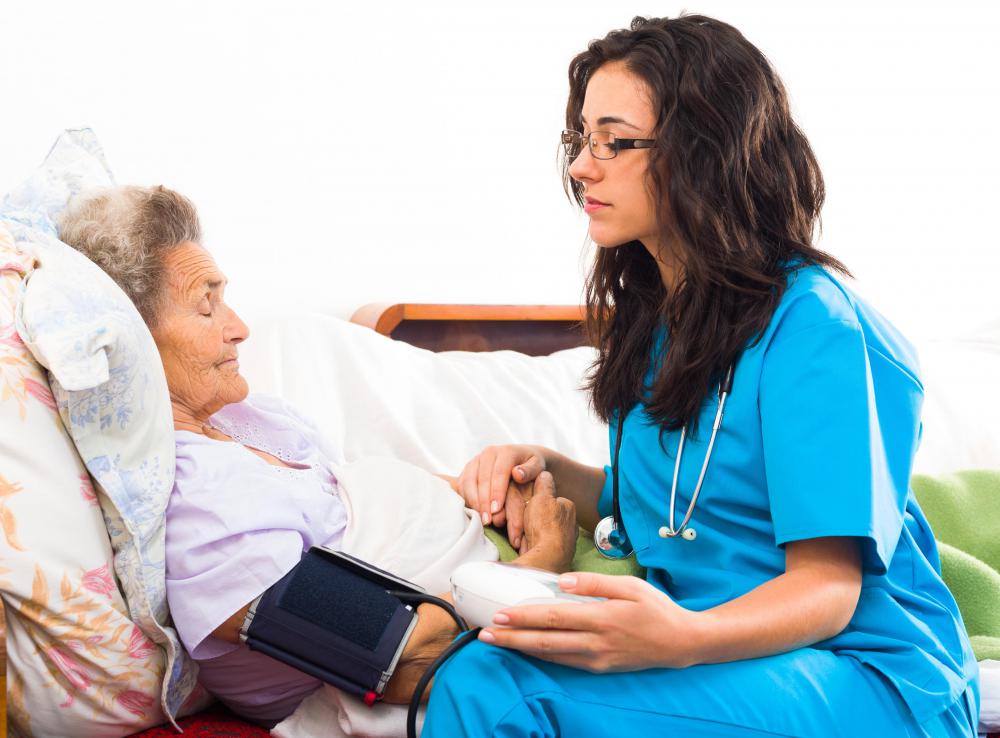At TheHealthBoard, we're committed to delivering accurate, trustworthy information. Our expert-authored content is rigorously fact-checked and sourced from credible authorities. Discover how we uphold the highest standards in providing you with reliable knowledge.
What is Care Coordination?
Care coordination is an approach to healthcare in which all of a patient's needs are coordinated with the assistance of a primary point of contact. The point of contact provides information to the patient and the patient's caregivers, and works with the patient to make sure that the patient gets the most appropriate treatment, while ensuring that health care is not accidentally duplicated. This process appears to save money on health care costs, as has been demonstrated by a number of care coordination pilot projects and organizations, and it improves the quality of care as well as patient satisfaction.
The approach of care coordination is used for patients with special health care needs who require long term health care. Someone with the sniffles does not need this service; an older adult suffering from several chronic illnesses does, just as a child with developmental disabilities can benefit from it. Care coordination can also be used to help people recover from serious accidents or strokes, to manage mental health conditions, and to assist patients with comorbidities.

The point person involved in the care coordination works with the patient and family on a regular basis. This person may accompany patients to appointments, or meet with care providers about the patient's care. The coordinator answers questions from the patient and the family about health care options, choices which may present themselves during the health care process, and potential outcomes. One important role of the coordinator is to confirm that the patient is getting necessary care; if a patient needs physical therapy, for example, the coordinator makes sure that the patient has regular appointments with a physical therapist. Coordinators also confirm that health care providers have necessary information, such as a complete list of the patient's medications and a complete medical history for the patient.

Using care coordination can cut down on health care costs by streamlining the provision of health care and avoiding duplicate visits. It also reduces stress and strain for patients and caregivers. The coordinator is always available to answer questions when doctors are not, and family members can also consult with the coordinator when it comes to making complex choices. The coordinator is familiar with all of the options given the patient's case, and can provide information about the potential outcomes of these options.

Some government agencies which handle health care needs have instituted care coordination for their beneficiaries, with the goal of cutting costs and improving the quality of care. This service can also be handled privately, with some insurance policies incentivizing the use of coordination because it cuts down on costs.
AS FEATURED ON:
AS FEATURED ON:















Discussion Comments
As a breast cancer patient who did not have a case coordinator, I heartily support all efforts for this approach. My guess is that I am not alone in finding the health care system more daunting than the disease itself. I was so shocked by the lack of coordination that I wrote an e-book about what it was like to be a 'not so patient' patient.
Better case coordination goes to the top of my list for needed healthcare improvements. Well, that and washing hands.
Great article. Thanks!
Care coordination sounds great, but the problem with coordination is paying for it, in my opinion. I know the article said some insurance companies incentive this, but I've never heard of such a thing. I doubt all companies do this. In my experience, most insurance companies try as hard as they can go get out of providing services!
Which is a shame, because, as the article said, I think care coordination could probably save money in the long run. For example, if one doctor has already ordered the patient to have a certain test done, another doctor from a different specialty will know that. That would prevent the insurance company (or the patient) from paying for the same test twice!
@Monika - Care coordination does sound like it would be a good fit for an older person. I know my mom helps my grandmother out a lot and keeps track of all the different medicines she takes. She sometimes goes with my grandma to her appointments and is kind of able to keep her doctors informed of what the others are doing.
But unfortunately, some older people don't have family around to help them. So a care coordinator seems like it would be the next best thing.
I actually just read an article about this topic in the newspaper not too long ago! Apparently they did a study, and a lot of elderly people are on too many medications or medications that don't work well together. The problem is a lack of communication between all of their different doctors.
I think services coordination is the perfect answer to this problem. If an older person has a lot of health issues and is seeing several different health care providers, it sounds like it would be helpful to have one person coordinating everything. That way the patient would be taking the right medications!
Post your comments